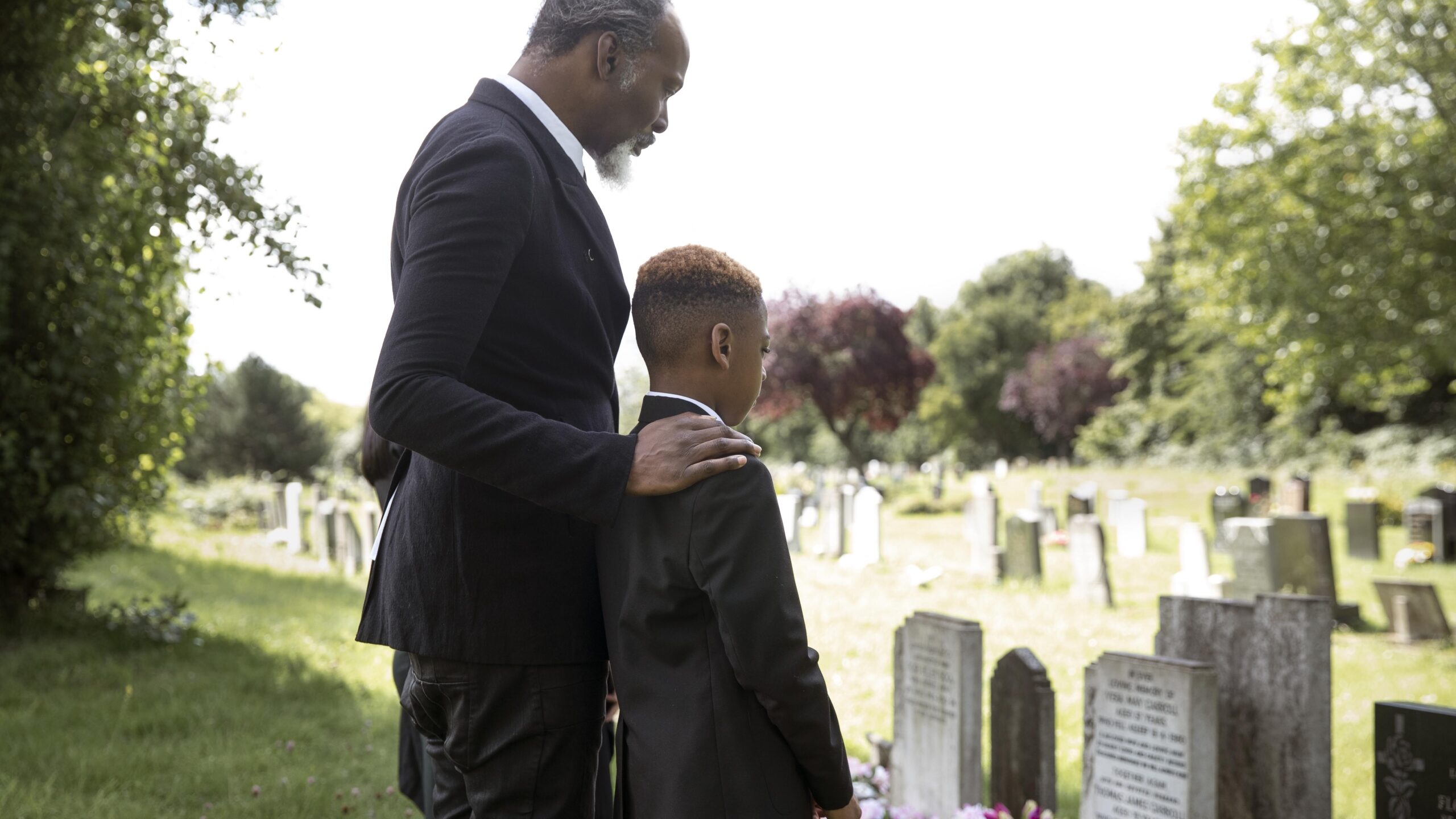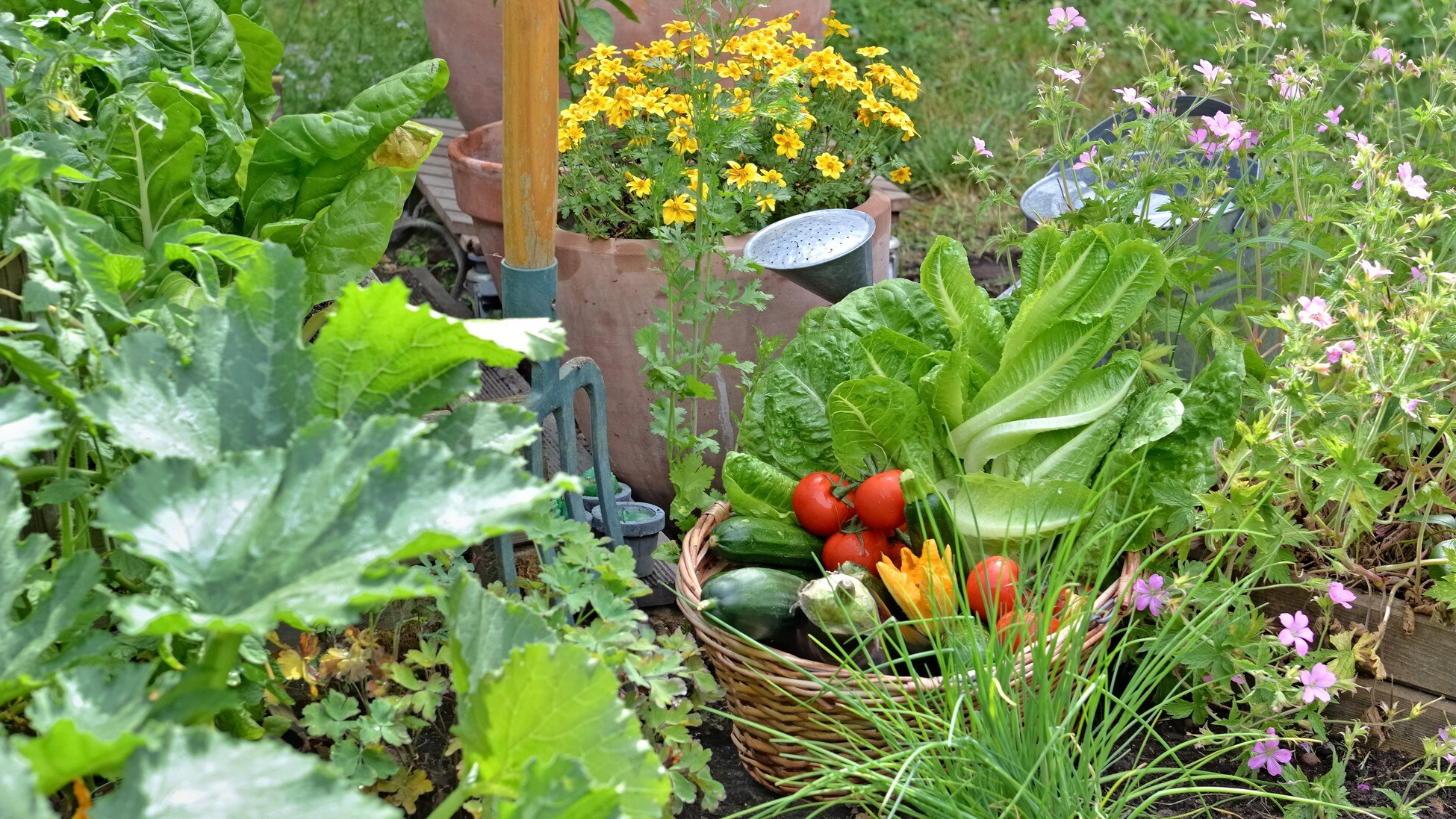Death and grief are both natural parts of life itself. We want to control them and postpone them and avoid them altogether. And yet, after being birthed into life, death is the only other thing that we will all experience, literally in our end.
My first memory of experiencing loss was with the death of my great-grandma Lynn. She had helped to name me. When she learned that her first great grandchild had been named Elizabeth, she told my parents that I was not to be knick-named “Liz”. She didn’t want me to share the name of their first car—an old tin Lizzy. Thus, Beth it has been ever since.
I have memories of her in the home she shared with her oldest daughter, my great-Auntie Gert. That is where she baked snickerdoodle cookies for me. I also remember her in the home of my grandmother Mildred, her younger daughter. She would sit at the card table set up by the window for the best light for putting together jigsaw puzzles teaching me to look for the edge pieces first. She also taught me how to play rummy.
Great-grandma Lynn died when she was 91. I was about 6. She had been hospitalized in her final week. I waited in the hospital waiting area as children were not allowed in the hospital rooms. Whether or not it happened, I remember her being wheeled out to the doorway at the end the hall of the hospital ward to wave at me and send her love.
Her funeral was the first one I remember attending. I sat surrounded by relatives in the funeral home parlor. I distinctly remember the pastor listing her surviving family members and recognized when I was named near the end of that list. I knew that I belonged to this family and now everyone there knew it as well.
My introduction to death was that it was the natural conclusion to a long life lived well. And when I play rummy or do puzzles or eat snickerdoodles to this day, I think of great-grandma Lynn with the sense of gratitude for her love in my life.
Roughly two years later, death went from being a natural conclusion after saying “good-bye” and “I love you” to being a traumatic, violent force when everything changes in an instant. Great-auntie Gert, Grandma Mildred, my other great-grandmother Summers, and great-Aunt Doris were killed in a car accident one sunny June Sunday afternoon. The next day, my father’s Aunt Clara (another favorite of mine) died a mere week after being diagnosed with Leukemia. I had loved these five women, ages 56 to 86. Grief took hold of everyone in ways that were overwhelming beyond words.
It was the care of our church community and close friends that provided our family with the strength to move through the grief. After “the accident”, holidays were no longer just family affairs. Other friends were invited to join us to fill the empty places round the table. We literally moved furniture in our home to accommodate items inherited from those who were gone. A lot of stuff was sorted, given away, thrown away or held in reverence as connectors to the memories of those women.
For over 50 years in our family, there is a subtle consciousness to remember that life is fragile. And although we would like to live long and well, surrounded by love with the opportunity to at least wave good-bye, we remember that it can come to an end in an instant. Which means, we have to talk about (and sometimes joke about) our inevitable deaths.
Revisiting Wills and Wishes
My husband and I revisit our will when there are changes in life’s on-going chapters, making sure we agree with what we documented the last time it was drafted. We don’t have to make provisions for dependent children anymore. Instead, we have conversations with them as adults about our wishes. We have also talked with them about having conversations with their partners about their wishes for their own medical and end of life care.
When my father died 22 years ago, we made sure that our kids, then 11 and 7, knew that they could be as present as they wanted to be, not only during the course of PopPop’s journey with cancer and death, but in the funeral planning. Our son chose to come with us to the funeral home along with my sisters, brother-in-law, mom, and my spouse. The funeral director explained what decisions we needed to make and then left the room for us to discuss the details. We were of one mind, and it took about 30 seconds. We knew what Dad had wanted. So, while we were there, in the presence of the oldest grandchild, the 11-year-old, we all went around the table and shared what our wishes were for our own funeral preferences.
Are these conversations difficult? Yes. And yet, they are so important. I am grateful that our family has been able to engage in them over the years. And I know that we will continue to have them in the future.
Elderhood Threshold
I believe that one of the thresholds from adulthood into elderhood is grasping the awareness anew that we are mortal, and the fact that the future is shorter with each passing day. There is a humility that I feel knowing that I have experienced more Thanksgiving holidays in the past than I will in the future. There really is a limit to time and to life.
As a pastor, I have had the privilege to preside over many funeral and memorial services. It truly is an honor to celebrate the story of one’s life in the context of our resurrection faith. And there is an element, particularly with each passing year, of the awareness that someday I will not be the one leading the service, but I will be the one being remembered. This is both an intellectual and emotional exercise.
In the meantime, I have to remind myself to tell those I love, that I do, love them. And I need to remember to return to the difficult conversations about my medical and end-of-life wishes as my life circumstances and the availability of medical care changes with each passing year. There also is a renewed sense that I need to begin to let go of the literal stuff around me that does not mean to others what it means to me—but that is another topic for another day!
For Reflection (either individually or with a group)
Read the blog. Read it a second time, maybe reading it aloud or asking someone else to read it aloud so you can hear it with different intonation and emphases. Invite the Divine to open your heart to allow the light of new understanding to pierce the shadows of embedded assumptions, stereotypes, and ways of thinking so that you may live more abundantly. Then spend some time with the following questions together with anything or anyone who helps you reflect more deeply.
- When did you first learn about mortality and death? What was the messaging around that experience?
- What are you doing now to create memories for your loved ones of time spent together?
- Have you had conversations with those you love about your medical and end-of-life wishes? If not, what is stopping you?
Download a pdf including the Reflection Questions to share and discuss with friends, family, or members of your faith community small group.
5/23/24 14:00
View all articles by:






















